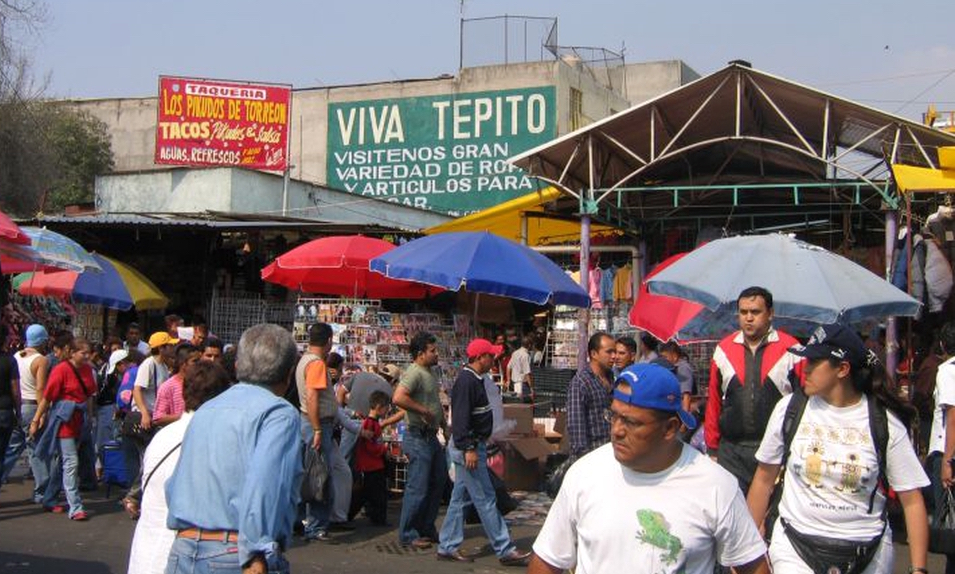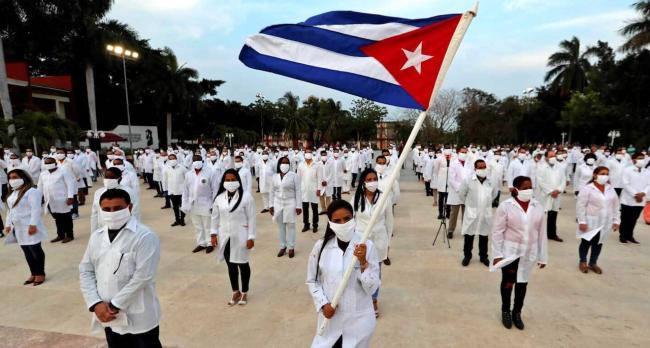Of the $10,700 that the Mexican government pays on average for each of the 585 Cuban doctors and nurses who serve in the country's capital, Havana has only paid them $660 for three months ($220 per month), a source from the medical brigade, and another close to these professionals, revealed to the DDC.
The duration of the contract between Havana, the Mexican Institute of Health for Welfare (INSABI) and the Government of Mexico City's secretariats of Health and Administration and Finance has not been disclosed. In an interview conducted on June 3, DIARIO DE CUBA requested a copy from the Secretary of Health of the Mexican capital, Olivia López Arellano, but has not yet received a response.
The official revealed that the contract is worth a total of $6,255,792, paid for by the INSABI.
That money pays for the work of the doctors in hospitals that serve Covid-19 patients, but also "training, specialization (...) counseling, and joint research," she said.
Accommodations do not enter into the expenses, as they are covered by Mexican hoteliers who have made "donations" to collaborate in the fight against the pandemic.
The Cuban professionals have been told that the $220 they receive is "for food."
Shopping in a dangerous neighborhood
DIARIO DE CUBA sources said that Cuban health professionals were taken last Sunday, along with security, to Tepito, a neighborhood with a high crime rate and known for its violence, but also for its streets full of tianguis (street markets) where one can buy all kinds of items at low prices.
Tepito is one of the few areas in Mexico City where it is possible to shop despite the pandemic and the danger of contagion.
The export of professional services, mainly medical, is one of the Cuban government's main sources of revenue, with it retaining at least 75% of what the destination countries pay the doctors in wages. In 2018 this activity generated some 6.4 billion dollars for Havana, far more than Tourism.
In addition to having to hand over at least three quarters of their salaries, Cuban health professionals sent on missions abroad are subjected to strong surveillance and restrictions of fundamental freedoms.
These conditions have been condemned by human rights organizations, and the UN has noted that they could constitute forms of "forced labor" and "modern slavery."
Responding to a question on this topic, Mexico City's Secretary of Health stated that Cuban doctors are doing "volunteer work."
"Health personnel around the world acknowledge that these brigades help to deal with epidemics and critical situations in different countries," said López Arellano.
"It is volunteer work, though it is professional," she insisted.
The Cuban Government, for its part, receives the equivalent of $10,693 per doctor.
Although it has touted the work of the island's doctors in other countries, the Cuban official press has been conspicuously silent about the doctors and nurses sent to Mexico starting last April.
In addition to the 585 professionals in Mexico City, there are another 180 in Veracruz, also under a contract with the local government.
Meanwhile, on the island, on Monday the Cuban government gave a heroes' welcome, complete with a parade through the streets of Havana included, to the health professionals who returned from Lombardy, Italy, one of the places hardest hit by the pandemic in Europe.
The official press dedicated extensive coverage to the return of those 36 doctors, 15 nurses and a logistical manager. However, it has not revealed how much money the government made off this operation (a benefit in addition to the political hay it has made of it) and how much went to the professionals.

